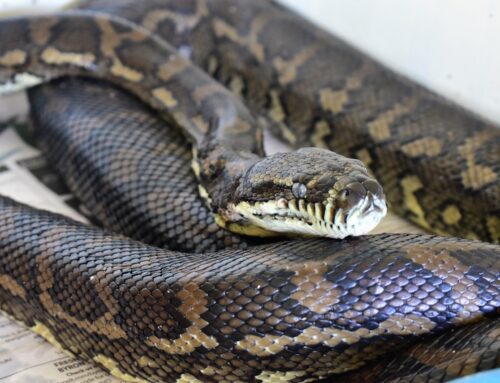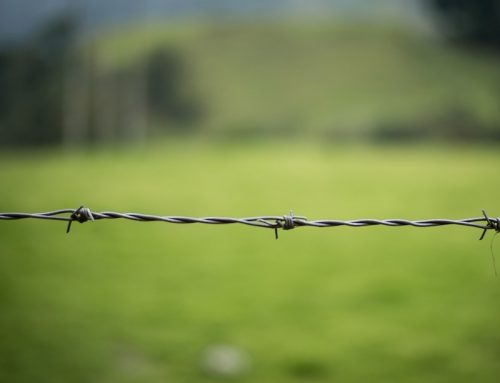In a happy but rare occurrence, a baby flying fox was successfully reunited with its mother by Tweed Valley Wildlife Carers (TVWC).
The baby male black flying fox, was found on a deck in a suburban area. After calling the TVWC 24-hour Hotline, the member of the public contained the bat until rescuers arrived.
It is important that bats are only handled by vaccinated, trained TVWC members. The member of the public did not touch the bat but placed a washing basket over it to contain it.
After having the baby flying fox checked by Currumbin Wildlife Hospital, Corrina Lever, TVWC Bat Coordinator, decided to attempt a reunite.
Corrina says, “I had asked the member of the public whether she regularly saw bats in her yard. She said that they came every night so I thought there might be a chance to reunite the baby with his mother.”
Corrina took the baby bat back to the yard where it was found at about 9 pm the following evening. She put it into a tree and, when the baby began to scream, two adult bats appeared and came down to get it.
“It was just wonderful to see the mother collect her baby,” Corrina reports. “They appeared as soon as they heard it. I don’t know whether the bats were retracing their steps looking for the baby, or if they just happened to be there, but there was no question that the baby belonged to one of them.”
Contrary to popular belief, birds and mammals recognise their young even after days of separation. Adults who lose young are invariably distressed. Every spring and summer, TVWC members spend many hours reuniting baby birds with their parents.
Jan Pilgrim, TVWC President says, “The best place for a baby native animal is with its parents in its natural habitat.”
Although TVWC volunteers always prefer reuniting animals, flying fox reunites are not often successful.
Flying foxes can travel 50 kilometres a night and visit hundreds of trees in search of food. This is what makes them such important pollinators for our rainforests and eucalypt forests. In the morning, an adult flying fox usually returns to the nearest camp to pass the day.
When an orphaned flying fox is found, TVWC volunteers do not know where to look for its mother. There may be several camps nearby and it is near impossible to know what time the baby was lost, how far the mother travelled after losing it or which camp she returned to.
One way to reunite a baby bat is to take it to the nearest colony and hope its mother will come if she hears it calling. The only other option is to care for the bat during the day and return to the spot where it was found in the evening, hoping the mother does the same.
Neither of these options has a very high success rate which is why the successful reunite was so exciting. Thanks to extended drought conditions and bushfires, it has been a difficult year for all native animals, including flying foxes. It is nice to have a good news story of a successful reunite.
Please remember that Tweed Valley Wildlife Carers is the only wildlife rescue and care group operating in the Tweed Shire area. Call our 24-hour Hotline on (02) 6672 4789 for all distressed, injured or orphaned wildlife.



Leave A Comment